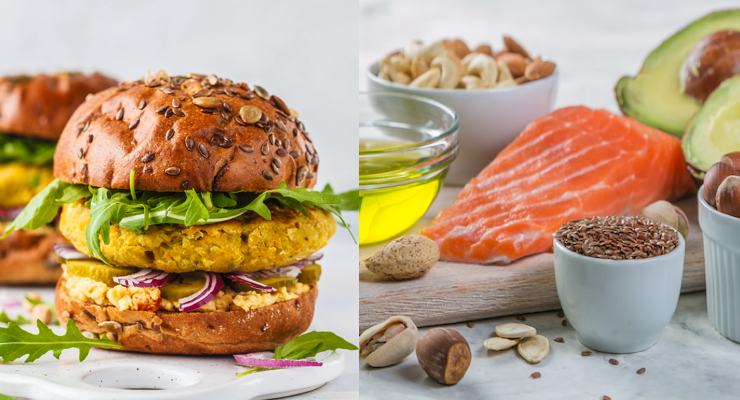Market Updates, Research
NIH Study Compares Low-Fat, Plant-Based to Low-Carb, Animal-Based Diet
Ketogenic and plant-based diets each have unique short-term advantages, the researchers concluded.

By: Mike Montemarano

A small but highly-controlled study conducted by the National Institutes of Health and published in the journal Nature Medicine attempted to examine some of the differences between a low-fat plant-based diet and a low-carb animal-based diet, and how restricting one major macronutirent group may impact health.
Led by researchers at the National Institute of Diabetes and Digestive and Kidney Diseases (NIDDK), the study compared the effects of the two diets on calorie intake, hormone levels, body weight, and more.
“High-fat foods have been thought to result in excess calorie intake because they have many calories per bite. Alternatively, high-carb foods can cause large swings in blood glucose and insulin that may increase hunger and lead to overeating,” NIDDK senior investigator Kevin Hall, PhD, lead author of the study, said. “Our study was designed to determine whether high-carb or high-fat diets result in greater calorie intake.”
The researchers housed 20 adults without diabetes for four continuous weeks in the NIH Clinical Center’s Metabolic Clinical Research Unit. The participants, 11 men and 9 women, received either the plant-based, low-fat diet or an animal-based, low-carb diet for two weeks, immediately followed by two weeks on the alternate diet. Both diets were minimally processed, and had equivalent amounts of non-starchy vegetables. The participants were given three meals a day, plus snacks, and could eat as much as they wanted.
The most significant differences included that people on the low-fat diet ate 550 to 700 fewer calories per day than when they ate the low-carb diet. Despite the large differences in calorie intake, participants reported no differences in hunger, enjoyment of meals, or fullness between the two diets. Participants lost weight on both diets, but only the low-fat diet led to a significant loss of body fat, the researchers said.
“Despite eating food with an abundance of high glycemic carbohydrates that resulted in pronounced swings in blood glucose and insulin, people eating the plant-based, low-fat diet showed a significant reduction in calorie intake and loss of body fat, which challenges the idea that high-carb diets per se lead people to overeat. On the other hand, the animal-based, low-carb diet did not result in weight gain despite being high in fat,” Hall said.
These findings suggest that the factors resulting in overeating and weight gain are more complex than the amount of carbs or fat in one’s diet. Hall’s laboratory showed in 2019 that a diet high in ultra-processed food led to overeating and weight gain in comparison to a minimally processed diet matched for carbs and fat.
The plant-based, low-fat diet contained 103% fat and 75.2% carbohydrates, while the animal-based low-carb diet contained 10% carbohydrates and 75.8% fat. Both diets contained about 14% protein and were matched for total calories presented to the subjects, although the low-carb diet had twice as many calories per gram of food than the low-fat diet. Subjects were able to eat what and however much they chose of the meals that were given.
“Interestingly, our findings suggest benefits to both diets, at least in the short-term,” Hall said. “While the low-fat, plant-based diet helps curb appetite, the animal-based, low-carb diet resulted in lower and more steady insulin and glucose levels. We don’t yet know if these differences would be sustained over the long term.”
The study was not designed to induce or make diet recommendations for weight loss, thus results may have been different if participants were actively trying to lose weight. Since all of the meals were prepared in an inpatient setting, it’s likely difficult to repeat these results outside of the lab due to the factors that make adherence to diets challenging.
“To help us achieve good nutrition, rigorous science is critical – and of particular importance now, in light of the COVID-19 pandemic, as we aim to identify strategies to help us stay healthy,” NIDDK director Griffin P. Rodgers, MD, said. “This study brings us closer to answering long-sought questions about how what we eat affects our health.”




















